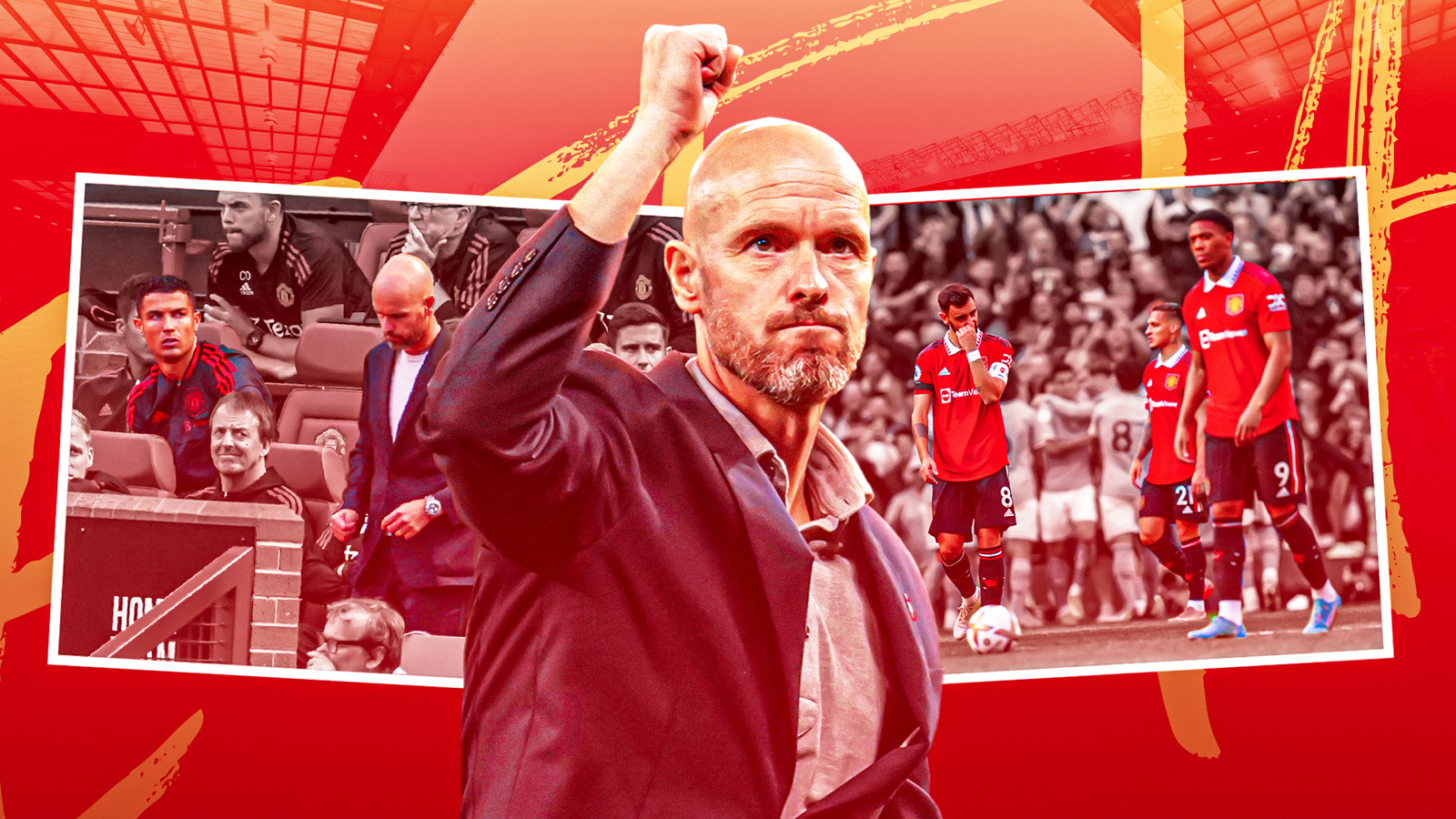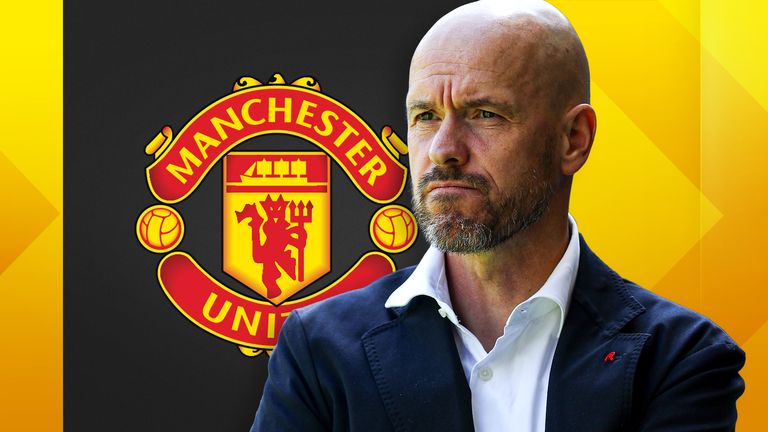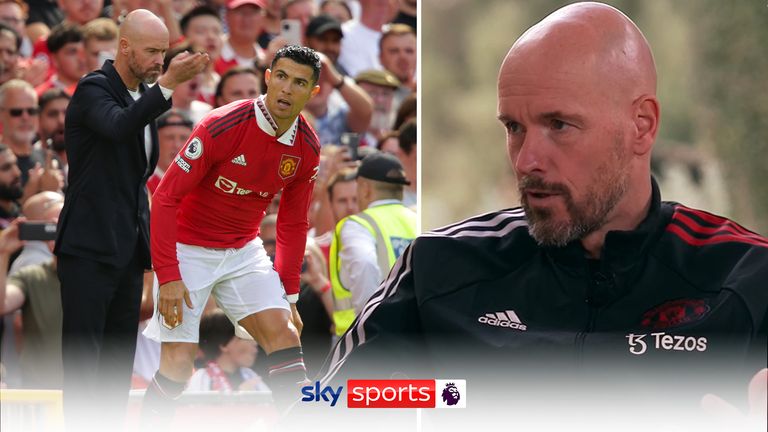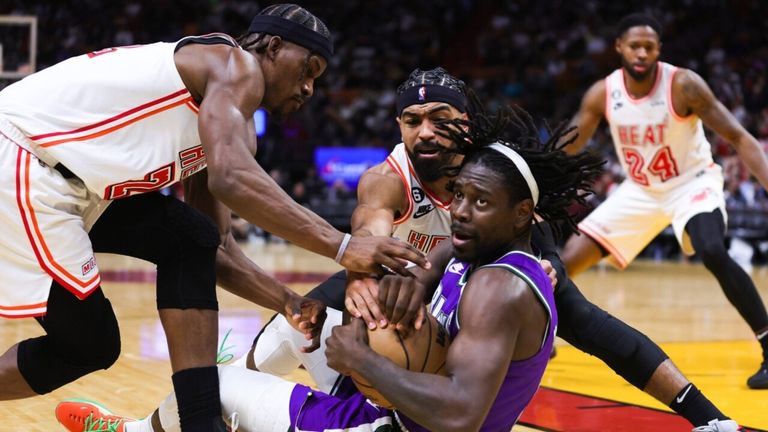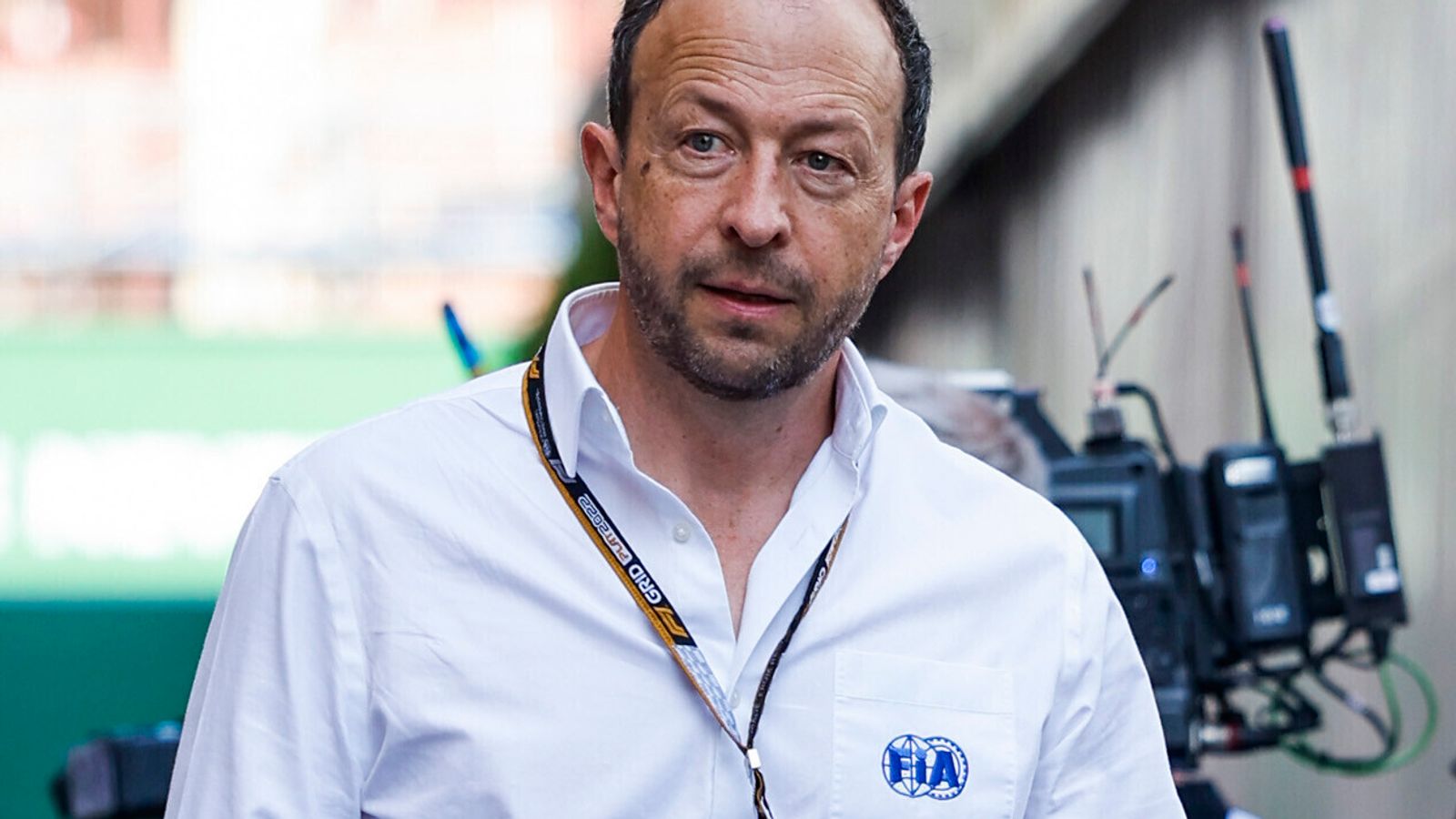Melissa Reddy: Inside Ten Hag’s Man Utd transformation since derby mauling | Football News
Ahead of the Manchester derby, Sky Sports News’ Senior Reporter Melissa Reddy analyses Manchester United’s transformation under Erik ten Hag.
Manchester is coated in a charcoal hue, the sky cracked with its riotous showers serving as background noise during a conversation in the shadow of Old Trafford.
“The gaffer is excellent at planning,” begins a Manchester United staffer, elongating that point to stress its merits, before adding: “but having worked under so many managers and being a part of different dressing rooms, I would say his biggest strength is how he reacts – especially in dark moments.”
It is a fitting skill to circle for Erik ten Hag as he primes for his second derby in England given the first was definitely one of those critical junctures that required a powerful response.
In October, Pep Guardiola’s Manchester City “hammered” United – to pinch the Dutchman’s description – ending their four-match winning run and problematically underscoring an inferiority complex.
The opening half at the Etihad threatened to derail all of the progress Ten Hag had made with the side after those early, sobering slaughterings by Brighton and Brentford. City were 4-0 up at the break, yet the scoreline still flattered a petrified United.
One senior player revealed that Ten Hag’s clear, confident talk at half-time despite the state of play “changed our mindset,” but moreover “showed us he is a real leader and believes in us during the worst moments, maybe when we don’t know how to believe in ourselves.”
United were already beaten in that derby but were braver in the second half, which had a slight consequence on the eventual 6-3 scoreline but a more profound impact moving forward.
Ten Hag called that gruelling game a “status check” for United, who had defeated Liverpool and Arsenal – they are still the only side to oust Mikel Arteta’s league leaders this season – but were facing another crisis of confidence. In the days following the derby, the manager held several meetings that touched on different facets, the first being psychology.
He told his players their attitude was not right, and within 10 minutes of kick-off their body language suggested they’d thrown in the towel.
Ten Hag wanted to understand why a team with “a good vibe, a good spirit” that could secure victory over Liverpool and Arsenal by being so disciplined and devoted to his principles, betrayed them without even trying at City. Why didn’t they back themselves when he did?
In collective and individual meetings, the 52-year-old illustrated periods offensively and defensively where and how a confident United succeeded in previous matches. This was entwined with blunt, barbed truths about a lack of fight against City, unacceptable effort, and a venture through all the poor decisions in possession and in transition.
During the chief analysis debrief that followed the derby, Ten Hag pulled up all the occasions where United could have been aggressive, but opted to passively allow Guardiola’s men to operate. One such instance was in the build-up to Phil Foden’s opener.
United had won the ball in a superb position to spark a counter-attack, but selected the wrong choices in transition which led to Jadon Sancho being dispossessed on the left with the team woefully out of shape.
They were so scrambled that their back four morphed into a back seven, with Scott McTominay, Diogo Dalot, Raphael Varane, Lisandro Martinez, Christian Eriksen, Sancho and Tyrell Malacia all behind the ball when Foden initially received possession.
Yet none of them put pressure against the ball, allowing Joao Cancelo, Bernardo Silva, and ultimately the England international to do as they pleased.
Ten Hag was scathing as he broke down the mistakes, and in a departure from the United we’ve known post-Ferguson, the dressing room did not take it personally nor look for ways to publicly or privately scapegoat others.
Instead, the manner in which Ten Hag delivered his address felt, according to the staffer, more like “an education than an undressing. He has made them accountable and they really do want to take responsibility.”
A line that was repeated by several of the squad in pre-season returned: for the first time in an age, the players felt like they were being properly coached, corrected, and steered at the club.
Since the derby, United have won 14 times in 17 fixtures across all competitions, with a solitary defeat.
The team are clearly responding to Ten Hag’s methodology and enjoying the depth of clarity and direction they have under him.
The fastest manager in history to record 20 wins at United’s helm commands such a buy-in due to his excellent ability on the training pitches and, significantly, the way he rules.
“Nobody can get away with anything with him,” Bruno Fernandes told Sky Sports News in the summer, and when that was proven to be the case in the most high-profile circumstance, it dawned on the squad that Ten Hag’s authority at United is ultimate.
Cristiano Ronaldo had coveted more power than Ole Gunnar Solskjaer and Ralf Rangnick, with the club’s hierarchy at his whim. Every department at the United – stretching from medical to media – was as one source put it, “there to serve Cristiano.”
An example flagged was the Portugal international’s decision to fly to Portugal last March without informing the club after being told he would not start the Manchester derby at the Etihad by Rangnick.
The unsanctioned trip was explained away as the forward reporting a hip flexor problem, but this in itself was an issue.
“You had a player diagnosing himself, ruling himself out, leaving the club with no form of rehab plan without any permission,” a colleague of Rangnick’s explained.
“Instead of any punishment, he was excused and there were excuses for him. It showed the rest of the players that Ronaldo was above any rules and that he was the one in control.”
While his predecessors agonised over when and how to drop the 37-year-old, as well as how to abide his demands about what formation to play and who shouldn’t be in the starting XI, Ten Hag had no such apprehension.
He did not allow Ronaldo’s absence to overshadow the fine work done on the club’s pre-season tour of Thailand and Australia, nor his presence and subsequent petulance to overpower the new culture he was creating at the club.
Under Ten Hag, Cristiano was no longer an exception to the rules. The little fuss yet total control the manager possessed when dealing with the five-time Ballon d’Or winner was a strong, crucial sign to the squad.
While fines for ill-discipline remain, Ten Hag does not subscribe to the thinking that it is an ideal form of punishment for multi-millionaires. At some clubs, the financial hit for stepping out of line morphs into a form of banter in dressing rooms, with the cash being used for team meals or other bonding sessions.
It is almost a reward and that grates Ten Hag, who believes that if your behaviour affects football matters, the penalty should also incorporate a sporting sting.
The supremely in-form Marcus Rashford was late for a team meeting after oversleeping and was dropped to the bench against Wolves despite United being light on the attacking front.
Instead of sulking, the England international “understood the decision” and was a game-changer when introduced. “It’s the team rules,” he said. “It is a mistake which can happen. we can draw a line under it and move on.”
Ten Hag added: “Everyone has to adhere to the rules and if you react like this, it is the right answer.”
Rashford’s form – 20 goal involvements across all competitions for United – is partly a subsequence of the crystalline, progressive identity Ten Hag has given United, his use of him on the left, and the removal of the Ronaldo factor.
“I am enjoying my football again, 100 per cent,” Rashford explained in November.
“The manager has created a playing style that produces a better quality of chances – and we are really playing forward-thinking football.”
Those words were a mirror to Rashford’s analysis during pre-season in Australia where he detailed to Sky Sports News that he felt he would thrive under Ten Hag as “he wants us to do everything in a positive manner, so for us it means a lot of forward runs, a lot of interchanging positions, trying to link with each other on the ball.”
Rashford’s shot placement, runs into the box, plus efficiency in and out of possession has all greatly improved.
United are progressing individually and collectively under Ten Hag, but he has also elevated wider club spheres.
His influence screams out when looking at recruitment. With the exception of Casmeiro, every player signed in the summer was heavily pushed for and sealed by the manager.
While he supported and was encouraged by the move for the pedigreed midfielder, he didn’t drive that transfer in the manner of plumping for Martinez, Antony, Eriksen and Malacia.
United insist that all the players bar the latter had featured on their shortlist for each position and Ten Hag’s character assessments only helped to solidify their thinking.
However, they would not have been able to get those transfers over the line if he was not in the dugout.
Even now, with a severely restricted budget and seeking short-term solutions to their striking issues, Ten Hag’s touch is apparent.
United’s agreement of a £2.5m fee for Besiktas to terminate Wout Weghorst’s spell so they can loan the Netherlands international from Burnley is his directive.
Ten Hag’s fingerprints stretch further still, to the pathway between the academy and first team.
“For me, cooperation between all the different departments is crucial to get the right culture in a club,” he said.
“Like at Ajax, when I entered Manchester United the reserve team was isolated.
“It was no longer really part of the academy, but it wasn’t part of the first team either. I changed that immediately – just as I did when I entered Amsterdam.
“At Ajax, the reserve team came under the responsibility of the manager. That was the only way I could have influence on the flow of young, talented players towards the first team.
“Of course I still give the coaches freedom to work, but I also give them direction, by saying for example ‘I want that player to start making minutes in that position.’
“So the final responsibility lies with me about how the second team performs and the flow of players that goes from the reserve team to the first team.”
Ten Hag is bettering United in the immediate term while plotting future stability and success.
Sky Sports News has been told he has allowed the club to “unite under one vision, with clear principles and non-negotiable standards.”
The evidence concurs. United will hope for a healthier “status check” in Saturday’s derby, but whatever the scoreline against City, Ten Hag is navigating them in the right direction.
As Pep Guardiola already analysed: “Finally United is coming back.”

